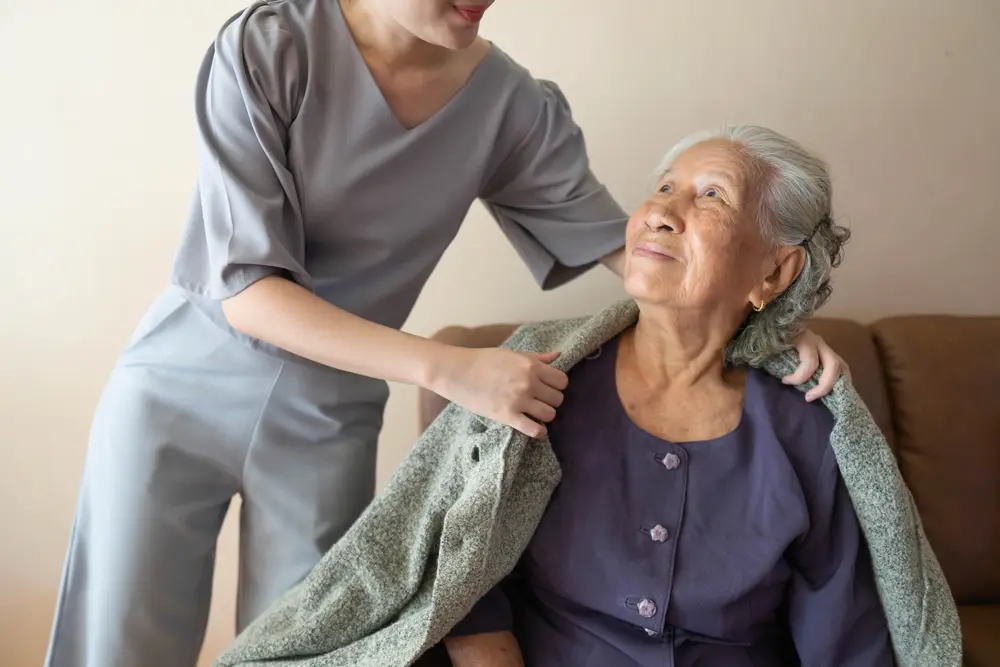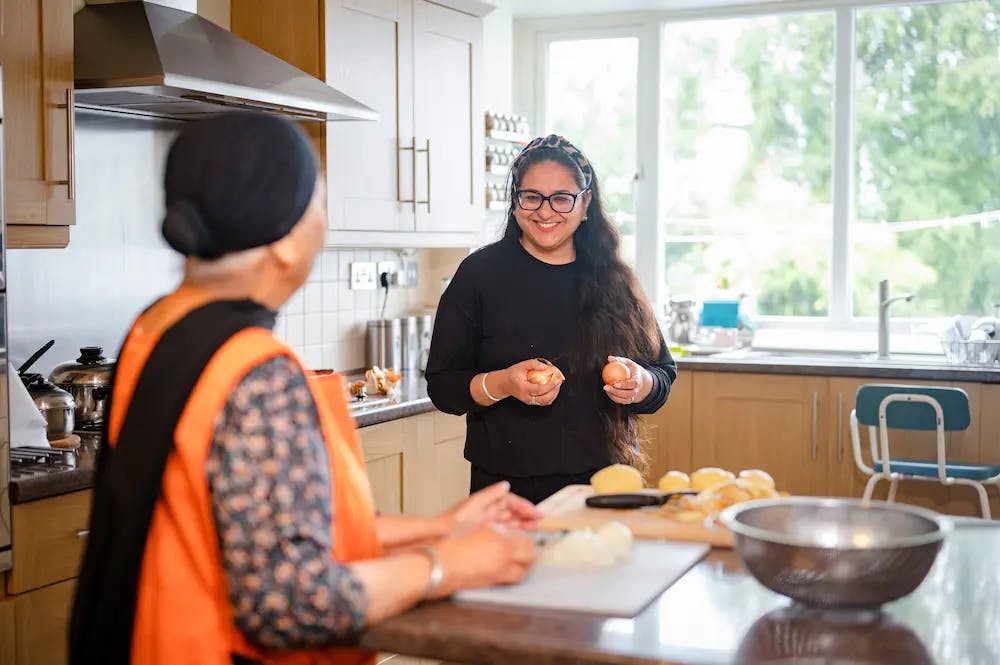Receiving Compassionate Palliative Care At Home

Estimated Reading Time: 6 minutes
This article was reviewed by Hannah Karim, Customer Care Lead at Lottie, on 4th September 2025. Hannah Karim has over three years of experience within the care sector and works closely with families to ensure they find the right care option. Hannah has received training from organisations such as Mind and The National Bereavement Service, and is also a certified Dementia Friend. Next review due September 2026.
Through palliative care at home, your loved one will receive comforting and compassionate support within a familiar setting, surrounded by the people they cherish the most.
This support will be provided by a palliative nurse who will offer specialist relief from any symptoms your loved one is experiencing, focusing on both physical and emotional treatment.
Here, we’ve explained how palliative care at home works, what services are available, the benefits and how to find it.
Arrange compassionate palliative home care
Browse palliative care at home in your area.
In this article:
- What is palliative care at home?
- When is palliative care at home needed?
- Examples of palliative care at home
- Benefits
- Find palliative home services in your area
What Is Palliative Care At Home?
Palliative care at home provides 24/7 nursing care for anyone with a serious or incurable illness in the comfort of their own home. The main focus of palliative care, whether you're receiving it at home or in a care home setting, is to make the care as comfortable as possible, while also removing as many day-to-day stresses as possible.
Symptoms are treated with compassion and dignity in care. Emotional support is provided through palliative care at home, both for the person being looked after and their family and close friends.
Palliative care at home for the elderly is often provided around the clock, particularly as your care needs increase.
The two main options for palliative care at home are live-in care and home visits. A live-in carer will support you around the clock in any needed way. Meanwhile, regular home visits are for people who don’t require constant supervision, but do need extra weekly support. The number and length of visits varies from person to person.
We can help you find the best palliative care at home for your or your loved one’s care needs. Request a free list of home care agencies, and our care experts will match you with suitable carers with availability in your local area.
When Is Palliative Care At Home Needed?
People choose to begin receiving palliative care at many different points. Your loved one can begin receiving it at any time after a terminal diagnosis has been made.
Elderly palliative care at home could last for several years, while end-of-life care at home takes place over a much shorter period (you only receive this type of care as you near the end of your life).
Your loved one’s GP can discuss specialist care requirements, along with the best time to begin receiving palliative care at home. You and your loved one can also discuss this with other family members.

Examples Of Palliative Care at Home
- Personal care, including assistance with personal hygiene, getting in and out of bed and getting dressed and undressed
- Helping to control pain
- Administering medication where necessary
- Other medical tasks, such as changing dressings
- Emotional support (both for the person receiving palliative care and their loved ones)
- Companionship care
- Physical therapy
- Assistance with any household chores

This palliative care can be given by various people and services, each with a slightly different role in providing palliative care. A palliative care team could include:
- Specialist palliative care nurses and doctors
- Physiotherapists and occupational therapists
- Counsellors and social workers
- Voluntary organisations and charities such as Marie Curie, Hospice UK or Sue Ryder
- A spiritual care coordinator (to provide spiritual support)

The Benefits Of Palliative Care At Home
- You’ll feel more comfortable and relaxed within familiar surroundings and spend more time with your loved ones
- Tailored one-to-one support from compassionate carers who often specialise in palliative care and can focus on specific symptoms and treatments
- Care is carried out in a way and at a time that suits the individual receiving it
- Family members can feel more at ease during a difficult time
How To Find Palliative Home Services In Your Area
We make it easy to find home care near you. You can use our free service to request a shortlist of home care providers with carer availability in your local area, delivered straight to your inbox. You can select the type of home care you require and also filter by any specific services you need (including palliative care).
National home care agencies that offer palliative care
The following are nationwide home care agencies that provide palliative care across the UK:
- Dove Home Care
- Edyn Care
- Ellea Nursing
- Hamilton George Care - England
- Helping Hands Live-In Care
- Noble Live-In Care
- Promedica24
- The Good Care Group - England
- The Good Care Group - Scotland
- Trinity Homecare
Aside from our service, speaking to your GP or a similar medical professional is another option. They’ll be able to talk you through all the options available in your local area.
You can also use the NHS to search for palliative care services near you.
Learn About Other Types of Home Care
We’re here to help you and your family choose the right type of home care. Check out our home care guides to learn more about the different types of home care offered by the agencies we’re partnered with:
Loading FAQs...



